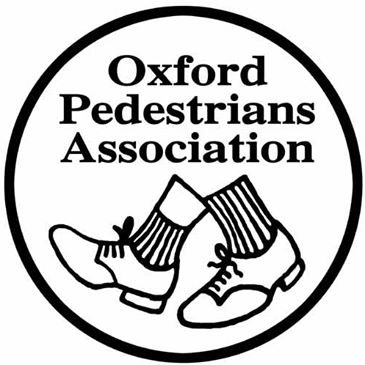The Future of the City’s Centre
Speaker: Gordon Reid (Oxford City Centre Manager)
Gordon Reid, newly appointed City Centre Manager, has come to Oxford after a career in town planning in Dundee, Edinburgh and Manchester, with a commitment to high quality public space for pedestrians.
Priorities and values:
- Urgent need for a draft plan/management strategy for the city centre to set priorities.
- Importance of ‘image’ not just for the city but the wider region; perceptions/experiences of the city centre will have influence far beyond the centre.
- Need more emphasis not just on the design quality of individual buildings but also the spaces between and the whole urban environment.
“Pedestrians” designates everyone by whatever means they arrive in the city, and should take priority over all other categories. Drivers vs. walkers is a false dichotomy; we are all pedestrians at some point. City centre pedestrianisation is essential, with a need for ‘ambassador’ walking routes into the centre. Attention to be paid to arrival points and way-finding, especially for visitors from outside. Oxford has 9m visitors per annum, staying an average of 6 hours with an average spend of £6.
Key Words:
- Quality
- Durability (not just transient fashion)
- Fitness for purpose
- Safety
- Clutter reduction
- Flexibility
- Cleanliness
- Difference/distinctiveness (not clone design – pastiche is not acceptable in buildings why should it be in pedestrian areas?)
- Innovation. Pedestrian spaces are more than the simple routes from A to B as engineers have tended to see them. They should have quality.
General discussion – topics included:-
The Draft Street Scene Manual which GR feels needs to include “end use of street”.
The need to plan for enjoyment of streets, and also for needs of cyclists.
Walking routes outside the city centre (beyond GR’s remit)
Relevance of new crossing format of London’s Oxford Circus for Oxford’s Carfax
Different types of crossings – relevance of traffic flow
Dialogue with University/Colleges – already started
Problems of obtaining funding from either public or private sources for urgently needed schemes, eg station access in current climate.
Importance of simple maintenance in some streets, rather than major investment eg Alfred St. New Inn Hall St as a successful example of what can be done.
The role of tourism and whether the return is worth the disruption. Oxford Councils are considering involving a ‘Destination Management Company’ to take greater advantage of tourism. GR has relevant experience from Edinburgh and would hope to co ordinate with councils on this. He believes tourism to be very important for the city and regional economy.
Concern expressed over lack of open spaces for the young especially in the evenings, and lack of facilities for simply sitting, for example to eat sandwiches.
Responsibility of the language schools to manage large numbers of young people. The Language School Forum no longer exists but there is a police officer seconded for liaison with Language Schools.
The need to reduce bus flows in the High St. and better management of long distance buses. (Gordon Reid aware but will need to prioritize his activities within a developed overall strategy).
Broad Street: current unsatisfactory use of our greatest asset. There is an existing scheme, but so far, no funding at a level which would require a change of mindset at national level. Many conflicting interest groups – University, Colleges, Councils and retail complicate the issue.
Gordon Reid sees Broad Street as an underused space, in contrast to Cornmarket and Queen Street.
Gloucester Green is also underused space with more potential despite its markets. Private ownership can hinder proper development.
There remains a need for more open space in the city centre: it was suggested Worcester Street car park, owned by Nuffield College, could fulfil this role.
Uncollected rubbish outside shops, empty premises and blocked pavements all detract from the quality of city environment. (Gordon Reid reported the former is already in hand, with fines for shops not complying with a strict timetable. Pavement obstruction is dealt with effectively in other cities and he expects to manage the problem here).
Gordon Reid very positive about public art and hoped more could be done as part of Transform Oxford.
The boundaries of Centre Manager’s remit are Magdalen, Folly Bridge, the railway Bridges, and the north end of St Giles, but this may not be rigidly defined.
Gordon Reid described his role as potentially threefold: to set up a strategy and action plan; marketing and promotion; stewardship (which elsewhere had included the use of staff to welcome visitors to the city centre, help with cleaning, maintenance etc). He understood that the previous business improvement scheme had not lasted but is very encouraged by the enthusiasm and support from the city council.
The potential for more imaginative and varied use of the streets eg marathons, sporting events. Gordon Reid would welcome ideas and innovations, with more flexibility of use of public spaces, especially in retail areas which can be dead outside shopping hours. The latter could be changed, as in Manchester, to keep streets busy and lively into the evening.
The meeting closed with warm thanks for Gordon’s interesting and frank discussion of such a wide range of issues. He was presented with a copy of OxPA’s “A More Walkable Oxford”.
